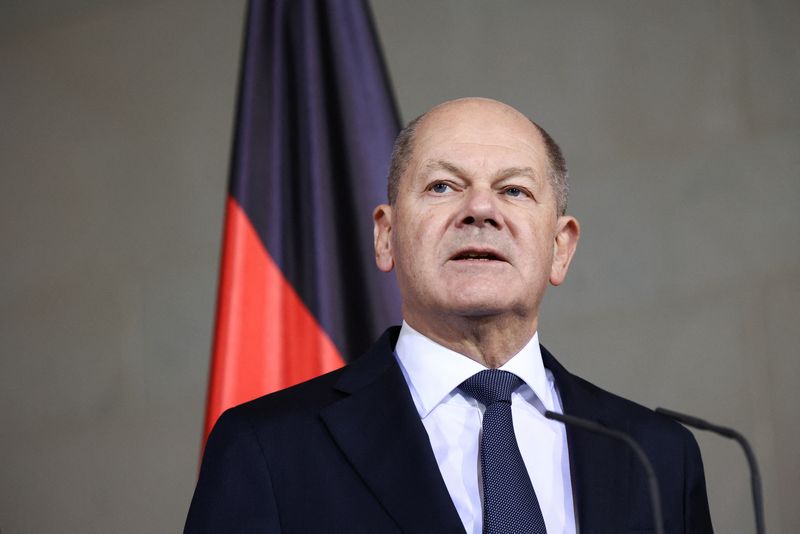BERLIN (Reuters) – German Chancellor Olaf Scholz despatched a request to parliament on Wednesday to carry a vote of confidence on Dec. 16, setting a path to an early federal election subsequent yr after the collapse of his coalition.
Policymaking in Europe’s largest economic system has largely floor to a halt since Scholz’s fractious coalition of Social Democrats (SPD), Greens and neoliberal Free Democrats (FDP) imploded final month, leaving him heading a minority authorities.
If, as anticipated, Scholz loses the boldness vote, he should then ask the president to dissolve parliament, which might set off contemporary elections. Scholz has agreed with the opposition to carry the election on Feb. 23.
“In a democracy, it is the voters who determine the course of future politics,” Scholz mentioned in a brief assertion to reporters.
“In the election, they will decide how we answer the big questions that lie before us. Let us have the confidence to invest vigorously in our future as a strong country.”
Scholz urged lawmakers to work collectively within the remaining window earlier than the elections to cross measures nonetheless on the agenda. That features maintaining a cap on electrical energy costs to assist Germany’s struggling business, in addition to tackling fiscal drag and elevating little one profit.
“This is about a few but very important decisions that can’t be delayed at all,” Scholz mentioned in Berlin shortly after he submitted a request to parliament to carry a vote of confidence.
Scholz cited current conferences with representatives at Volkswagen (ETR:) and Ford (NYSE:), each of whom are planning sharp cost-cutting measures.
“Everyone is warning that electricity costs must not continue to rise,” Scholz mentioned.
Final week, French Prime Minister Michel Barnier misplaced a no-confidence vote, underscoring the weird diploma of political instability plaguing each of Europe’s high powers.

Polls recommend the opposition conservatives are on monitor to win the federal election, with a survey on Monday placing them on 31%, adopted by the far-right Various for Germany on 18%, Scholz’s SPD on 17% and the Greens on 13%.
The FDP and the newly-created Sahra Wagenknecht Alliance are each polling just below the 5% threshold to enter parliament however analysts say voters can shift shortly as they’re much less loyal than they as soon as have been.




